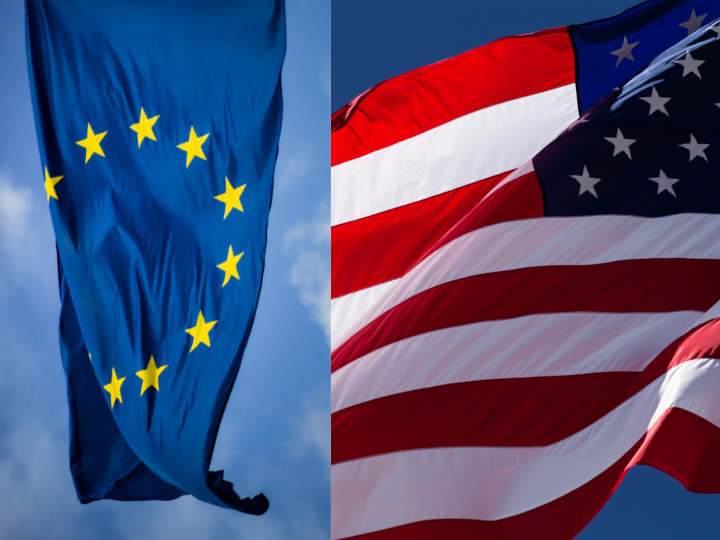by Judy Dempsey*
Some summits produce trite statements. Others are public relations exercises. Then there are those that make all sorts of commitments that are rarely fulfilled.
The virtual summit taking place on December 7, 2021, between U.S. President Joe Biden and his Russian counterpart Vladimir Putin fits into none of these categories.
This is because the summit coincides with a massive Russian military build-up along the border with eastern Ukraine.
It coincides with a cynical attempt by Belarus’s discredited leader Alexander Lukashenko to use migrants to divide the EU.
It coincides with an arms control regime that is rapidly weakening at a time when China is building up its military and nuclear arsenals.
And it coincides with the COVID-19 pandemic that is preoccupying so many countries as it takes its toll on lives, the economy, and trust in democratic institutions.
Skeptics may argue that the omens don’t seem particularly good for anything of substance to come out of the Biden-Putin summit. But don’t overlook one major element: President Biden goes into it with the full backing of the United States’ allies.
After the disruptive years of former president Donald Trump’s administration that mocked the EU and derided NATO and other multilateral organizations, there was the feeling among many Europeans that the post–1945 order was rapidly fading. In its wake, it would leave the West weaker, divided, and susceptible to the influence of Russia and China, which are poised to take advantage of the West’s decline.
Yet, over the past several weeks, the Biden administration has gone on the offensive in Europe with its top diplomats making the rounds in many European capitals. The administration has even shared intelligence—a rare event—with its allies about the extent of the Russian military build-up. And it is forging a security agreement with the EU. The aim was to go into the summit with Putin with the full backing of NATO and the union.
With such support, Biden now has to decipher Putin’s real intentions. There are many unknowns. What is clear is that the Kremlin does not want NATO’s reach extending to Ukraine—not that this is currently an option for either the alliance or Kiev.
NATO is not the only glue that keeps the transatlantic alliance intact. The rapidly shifting security context involves technological change, digitization, pressure on global trade, and a pandemic that has exposed the vulnerability of supply chains. This calls for a sober assessment of how the West can and must modernize its relationship.
“There is lots of positive potential,” said Daniel Baer, a former U.S. diplomat now at the Carnegie Endowment for International Peace. The transatlantic relationship “was due for a step change,” he added.
It’s already happening. The EU and the U.S. administration are in the throes of detailed negotiations over climate, trade, as well as the scope and tax regime of U.S. tech companies. On top of that, sensitive issues related to Europe’s stringent data protection laws are being discussed.
These subjects, to name just a few, are complex because of the different rules and legal systems in the United States and Europe, not to mention how any U.S. administration has to deal with the internecine struggles between the EU’s member states and the bloc’s institutions.
This is where trade comes into play. The extent of it is so great—and so often underestimated—that it is one of the most fundamental pillars of the transatlantic relationship.
Just take a look at the European Commission’s analysis of trade with the United States. “The transatlantic relationship defines the world economy,” it states. The EU and the United States have “the largest bilateral trade and investment relationship and enjoy the most integrated economic relationship in the world… Taken together, the economies of both territories amount to more than 40% of world GDP and more than 40% of global trade in goods and services.”
Even though China has overtaken the United States as the EU’s largest import source for goods, EU-U.S. economic bonds have a profound cultural element. They are based on a market economy, transparent procurement rules, regulatory procedures, and the rule of law.
These economic, investment, and trade aspects, in addition to the political system, define the West. That is why the collapse of the Transatlantic Trade and Investment Partnership talks was disappointing. It would have constituted a big step toward the introduction of common standards—even something as basic as electric plugs. It would have set the example for many other countries wanting to emulate such standards.
When influential trade lobbies in European countries press their governments to help clinch lucrative contracts with Moscow or Beijing, the playing field is rarely level. From issues related to weak—to say the least—property and intellectual property rights, corruption, and kick-backs, European companies face a different economic and trade culture. Western norms cannot be taken for granted.
These norms are more important than ever as the competition for global dominance intensifies. At stake is the West’s adherence to a competitive order based on rules, values, and transparency.
That is why the Biden-Putin summit matters. It’s about the West defending these aspects of the post–1945 order, despite efforts by Moscow and Beijing to relegate them to the history books.
*nonresident senior fellow at Carnegie Europe and editor in chief of Strategic Europe
**first published in: carnegieeurope.eu




 By: N. Peter Kramer
By: N. Peter Kramer
